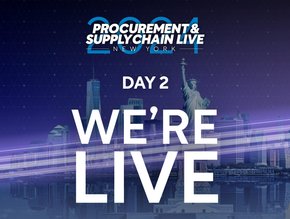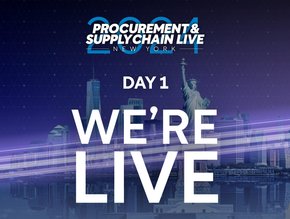Snowflake's Tim Long on Why Gen AI Is a Supply Chain Boon
Tim Long is the Global Head of Manufacturing at Snowflake, a fully managed SaaS that provides a single platform for data warehousing, data lakes, data engineering, data science, data application development, and secure sharing and consumption of real-time shared data.
Tell us a little of your role at Snowflake
My role is centred on spearheading the strategic sales and marketing initiatives within the manufacturing sector. I am responsible for driving the adoption of Snowflake's cutting-edge cloud data platform, empowering manufacturers to harness the full potential of their data for transformative insights and decision-making.
What impact can Gen AI have in manufacturing?
In manufacturing, Gen AI and large language models (LLMs) have the ability to distil complex data and analytic insights and present them in a conversational language that is accessible by anyone. As well as answering questions in plain language, generative AI can also orchestrate analytical workflows, which makes it easier to optimise the manufacturing process and troubleshoot problems within it.
Through iteration, engineers can explore data, test hypotheses and use machine learning and simulation capabilities. It is a revolutionary technology that will create an incredibly streamlined and accessible way to accelerate the continuous improvement process, and identify opportunities digitally, leading to shorter cycle times, reduced production costs and fewer defects.
How can Gen AI improve factory productivity?
Manufacturing lines rely on efficiency and uptime to be successful. Data is already widely used in manufacturing for predictive maintenance, which helps to maximise the availability of equipment by suggesting when maintenance and repairs may be needed in advance.
However, the reality of manufacturing is that there will also always be unforeseen issues that have to be addressed in real time. This is where generative AI can help.
AI-guided troubleshooting and repairs can help to understand the relationship between documented equipment procedures and the data generated by machines, allowing engineers to restore production lines to full capacity faster.
Can AI help de-risk global supply chains?
Due to industry consolidation, many large manufacturers use multiple ERP systems, whose siloed data has historically made it harder to find a clear view into the supply chain network. Organisations are now breaking down those data silos.
LLMs come into their own when empowering business users to find insights from that consolidated data, as well as to better understand this data, and improve transparency, context and democratisation. This offers easier access to probabilistic techniques such as route optimisation, forecasting and planning.
This all has a huge effect on supply chain efficiency and resiliency, which in turn improves customer satisfaction and profitability.
- Check out the latest edition of Supply Chain Digital and also sign up to our global conference series: Procurement & Supply Chain 2024
******
Supply Chain Digital is a BizClik brand







